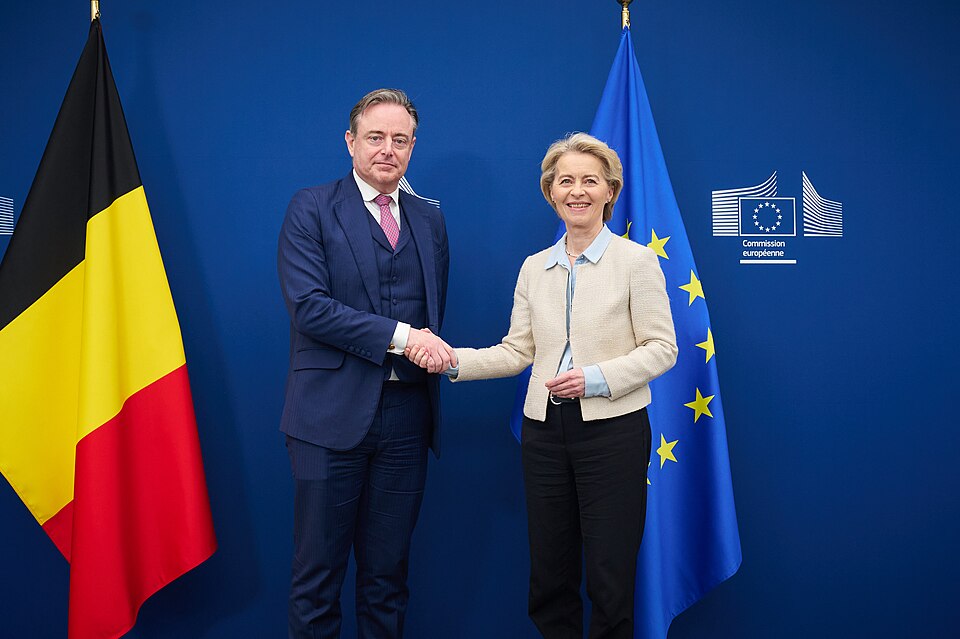
Belgian Prime Minister Bart De Wever has cautioned that the European Union’s push to use frozen Russian state assets to fund Ukraine risks undermining the chances of securing a future peace
agreement to end the nearly four-year war.
Belgium’s position is pivotal: the bulk of the Russian sovereign assets the EU hopes to mobilise are held by Brussels-based clearing house Euroclear.
At last month’s summit, EU leaders attempted to rally support for a plan to treat roughly €140 billion (US$162 billion) in frozen Russian central bank assets as collateral for a loan to Kyiv. The effort stalled amid Belgium’s refusal to back the scheme.
In a letter to European Commission President Ursula von der Leyen — seen by Reuters and first reported by the *Financial Times* — De Wever warned that “hastily moving forward” with the plan could have serious diplomatic consequences.
“Such a reparations loan scheme would have, as collateral damage, that we as the EU are effectively preventing an eventual peace deal,” he wrote.
Von der Leyen’s proposal would channel proceeds from the immobilised Russian funds into Ukraine’s defence and budget needs, at a time when Kyiv faces a widening financing gap and diminishing international assistance.
EU to renew pressure on Belgium
The Commission is preparing draft legal proposals aimed at addressing Belgium’s objections, with officials indicating the text could be presented as early as Friday. De Wever, however, said Belgium has yet to see any concrete legal language.
Brussels did not immediately comment on the correspondence.
EU leaders are hoping to reach a unified position at their next summit on December 18–19, as debates intensify over how to sustain long-term financial support for Ukraine without increasing the bloc’s own debt.
While von der Leyen has floated alternative financing options in recent weeks, she continues to centre the frozen-assets mechanism as the most viable solution in the face of political resistance from several member states.
‘Fundamentally wrong,’ says De Wever
De Wever reiterated his fundamental opposition to the plan, arguing that immobilised assets have historically been dealt with only after conflicts — typically as part of formal reparations from the defeated state.
The Belgian leader also warned of possible Russian retaliation, including legal claims against both Belgium and Euroclear, concerns Moscow has already signalled.
Beyond the assets held in Belgium, around €25 billion in Russian sovereign funds are frozen in other EU jurisdictions, primarily France and Luxembourg.
Belgium has insisted that any such EU plan must be part of a broader international effort involving other G7 nations — including Canada, Japan, Britain and the United States — that also hold Russian state assets. Photo by © European Union, 2025, Wikimedia commons.







































